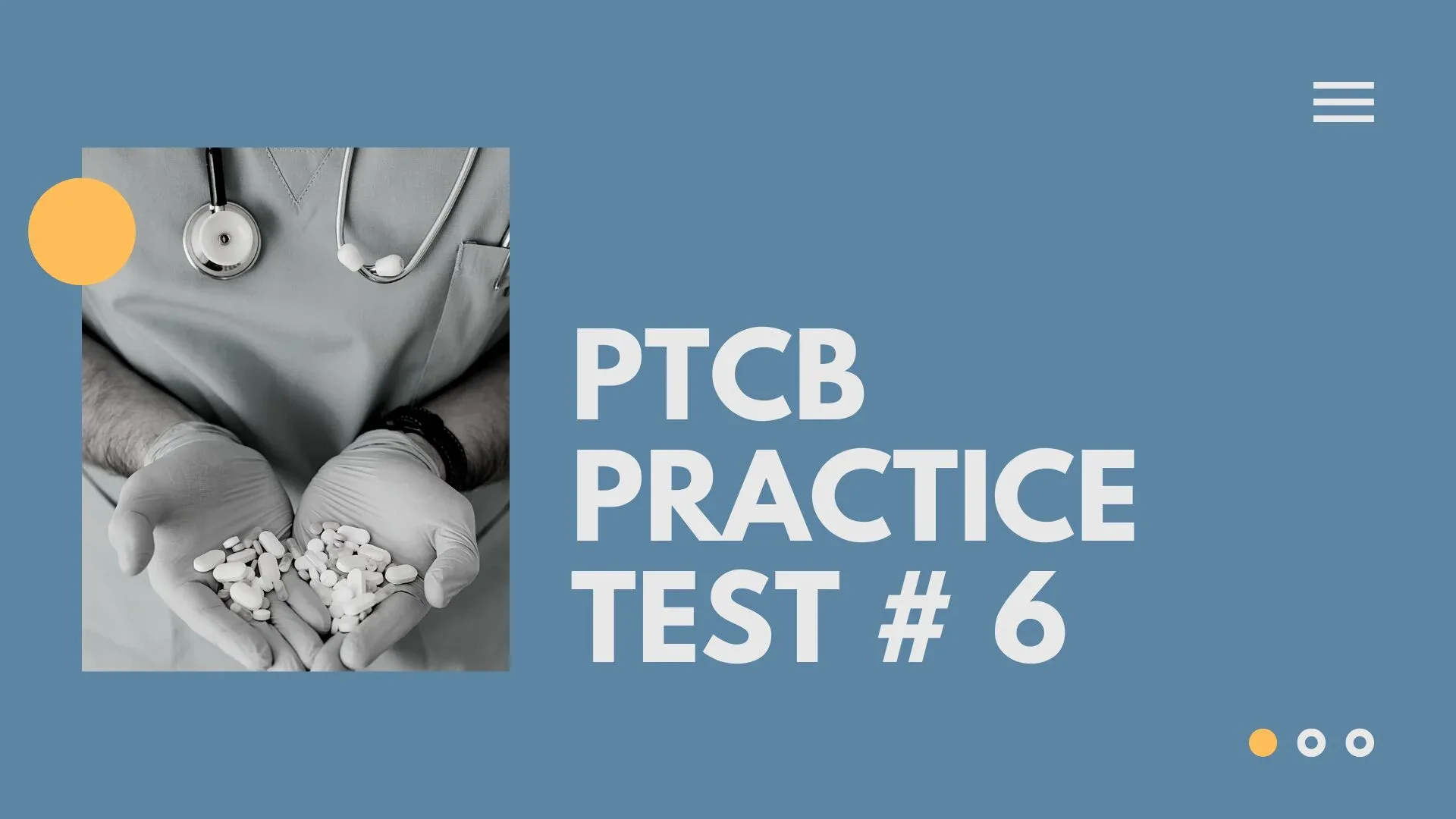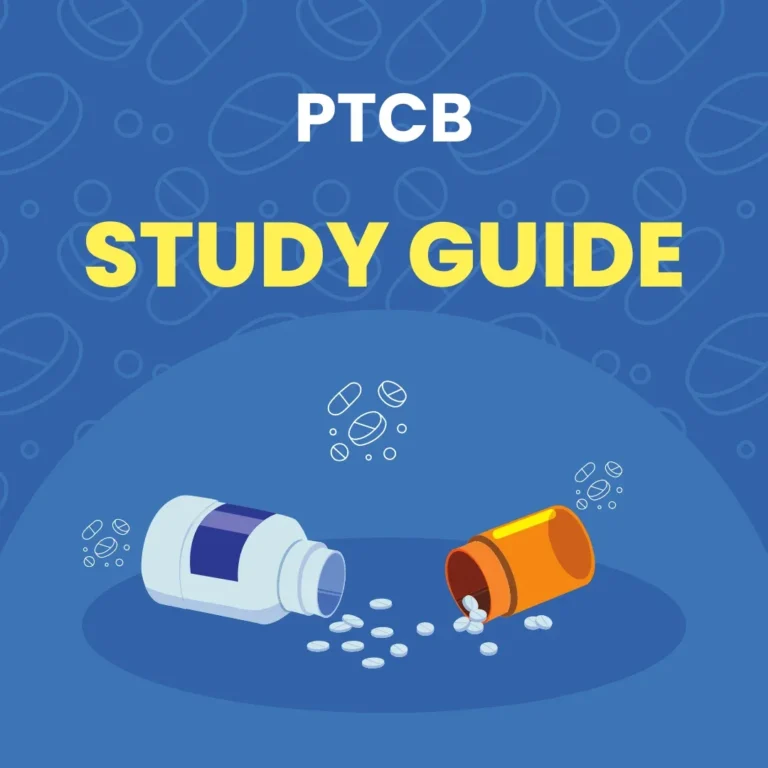Practice Test 6
A Certified Pharmacy Technician (CPhT) is a healthcare professional who has passed a national certification exam to validate their knowledge and skills in the field of pharmacy. Pharmacy technicians play an essential role in the pharmacy setting, assisting pharmacists with various tasks such as dispensing medications, managing inventory, and providing customer service. The CPhT certification serves as a mark of competency, demonstrating that the technician has met a standardized level of proficiency. This certification is vital in ensuring the safe and efficient operation of pharmacies and in promoting patient safety.
Try More Practice Tests
The Role of a Pharmacy Technician
Pharmacy technicians are integral members of the healthcare team, performing a wide range of tasks to support pharmacists and ensure the smooth functioning of pharmacies. Their duties vary depending on the work environment, which may include retail pharmacies, hospitals, long-term care facilities, mail-order pharmacies, and other healthcare settings. Below are some of the primary roles and responsibilities of a pharmacy technician:
- Medication Dispensing: Pharmacy technicians help prepare and dispense medications to patients. This includes measuring, packaging, and labeling prescriptions under the supervision of a pharmacist.
- Inventory Management: Technicians are responsible for managing the pharmacy’s inventory, ensuring that medications and supplies are adequately stocked and properly stored.
- Customer Service: Pharmacy technicians often interact with patients and healthcare providers, answering questions and providing information about medications, insurance, and other pharmacy-related topics.
- Record Keeping: Technicians maintain patient records, including prescription histories and insurance information, ensuring accuracy and compliance with privacy regulations.
- Regulatory Compliance: Pharmacy technicians must adhere to pharmacy laws and regulations, ensuring that the pharmacy operates within legal requirements.
Given the critical nature of these tasks, certification as a CPhT is an important credential that provides assurance to employers and patients about the technician’s competency.
The Certification Process
To become a CPhT, individuals must meet specific education and experience requirements and pass a certification examination. The Pharmacy Technician Certification Board (PTCB) is one of the leading organizations that offer the Certified Pharmacy Technician certification in the United States. Below are the key steps in the certification process:
- Eligibility Requirements: Candidates must have a high school diploma or equivalent. Some states may have additional requirements, such as completing an accredited pharmacy technician training program or obtaining a certain amount of work experience.
- Certification Exam: Candidates must pass the Pharmacy Technician Certification Exam (PTCE), a computer-based test that assesses knowledge in several key areas, including pharmacology, pharmacy law and regulations, medication safety, and pharmacy operations.
- Maintaining Certification: After obtaining certification, CPhTs must complete continuing education (CE) requirements to maintain their certification. Typically, 20 hours of CE are required every two years, with specific requirements for pharmacy law and medication safety.
Benefits of Certification
Obtaining the CPhT certification offers several benefits to pharmacy technicians, employers, and patients. Here are some of the key advantages:
- Standardization of Knowledge: The CPhT certification ensures that pharmacy technicians have a standardized level of knowledge and skills, promoting consistency and quality in pharmacy practice.
- Increased Job Opportunities: Certified pharmacy technicians may have more job opportunities and are often preferred by employers due to their demonstrated competency.
- Career Advancement: The CPhT certification can serve as a stepping stone to further education and career advancement. Many CPhTs pursue additional training or specialize in areas such as sterile compounding or medication history.
- Improved Patient Safety: By demonstrating proficiency through certification, pharmacy technicians contribute to a safer pharmacy environment, reducing the risk of medication errors and promoting patient safety.
- Professional Recognition: Certification helps establish pharmacy technicians as professionals within the healthcare field, providing recognition for their expertise and dedication.
Career Opportunities and Advancement
The CPhT certification opens up a range of career opportunities within the pharmacy field. Pharmacy technicians can work in various settings, each with its unique challenges and opportunities for growth. Here are some common career paths for certified pharmacy technicians:
- Retail Pharmacy: This is one of the most common settings for pharmacy technicians, where they work in community pharmacies assisting with medication dispensing, customer service, and inventory management.
- Hospital Pharmacy: In hospitals, pharmacy technicians may work in inpatient and outpatient settings, helping prepare medications for patients, managing inventory, and performing other tasks unique to the hospital environment.
- Long-Term Care Facilities: Pharmacy technicians in long-term care facilities work with medications for residents, ensuring proper storage, distribution, and record-keeping.
- Mail-Order Pharmacy: This setting involves processing and dispensing large volumes of medications for delivery to patients, requiring efficient workflow management and attention to detail.
With experience and additional training, pharmacy technicians can advance to supervisory or specialized roles, such as sterile compounding technician, pharmacy technician supervisor, or pharmacy buyer. Certification can also be a pathway to further education, with some technicians choosing to pursue careers as pharmacists, nurses, or other healthcare professionals.
Conclusion
The Certified Pharmacy Technician (CPhT) designation is a critical credential for pharmacy technicians, demonstrating their knowledge, skills, and commitment to providing high-quality service in the pharmacy setting. Through certification, pharmacy technicians contribute to patient safety and support the efficient operation of pharmacies. The CPhT certification also offers career opportunities and advancement, providing a pathway for those who wish to further their careers in healthcare. Ultimately, certified pharmacy technicians play a vital role in the healthcare system, ensuring that patients receive safe and effective medications and contributing to the overall success of the pharmacy.



